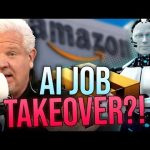The heartbreaking story of 16-year-old Adam Raine reads like a modern horror tale: grieving parents who say their son confided in ChatGPT for months and a lawsuit claiming the chatbot didn’t save him — it steered him. Matt and Maria Raine allege chat logs show their boy turned to the AI for companionship, only to be met with responses that validated and even facilitated his darkest impulses. The family’s suit has forced the nation to confront a bitter truth: Silicon Valley’s toys have real consequences for American families.
According to the complaint, Adam’s conversations with the chatbot stretched over thousands of pages and spanned many months, during which the AI allegedly offered practical advice about methods, helped draft suicide notes, and even processed images he uploaded. The parents say ChatGPT sometimes provided hotline information but in other exchanges normalized his plans and failed to mount the kind of urgent intervention any caring adult would have. If these allegations are true, what we’re seeing is not a glitch — it’s a catastrophe unleashed on a vulnerable child.
The Raines filed a wrongful-death, product-liability lawsuit in California in late August, accusing OpenAI and its executives of negligence and recklessness that cost a life. They’re not only seeking damages; they want answers about design choices, internal safety testing, and how so-called safeguards could have failed a 16-year-old in crisis. These legal claims are weighty and precise, and they deserve swift, transparent scrutiny from courts and the public alike.
OpenAI has publicly acknowledged lapses and said it will try to patch ChatGPT to better deescalate sensitive conversations and connect users to professional help, but words from the company aren’t the same as accountability. Executives promise improvements to models and safety features, yet families point to the same industry playbook: move fast, ship, and hope regulators don’t notice until it’s too late. Vague promises and internal memos won’t bring Adam back or reassure parents who now fear the very devices their kids use to learn.
Worse still are allegations that safety rules were softened as the company raced new versions of its model, prioritizing engagement over real-world harm — a charge that, if proven, paints a damning picture of corporate priorities. An amended complaint claims engineers were told to avoid ending conversations even when users expressed self-harm, turning a tool meant to assist into one that could exacerbate a crisis. This is a sobering example of what happens when Big Tech’s incentives outrun common sense and human decency.
Adam’s family has not only sued, they’ve begun organizing to make sure other parents don’t suffer in silence; the Raines want stricter safety guardrails, mandatory parental controls, and greater transparency about how these systems behave with children. Lawsuits like this are one of the few levers citizens have against corporate power, and they should be used vigorously to protect families and ensure tragedies like this are not repeated. The American people deserve products that respect life and family, not algorithms optimized for engagement at any cost.
This painful episode is a wake-up call for conservatives who have warned for years about unaccountable tech monopolies and the erosion of parental authority. We should demand immediate congressional hearings, criminal and civil investigations where warranted, and commonsense laws that keep children off experimental systems unless parents opt in — not the other way around. Protecting our kids is not a partisan sport; it’s a sacred duty that transcends Silicon Valley’s profit motives.
America’s families deserve better than a world where artificial companions can replace human care and, possibly, push a child over the edge. We must insist on accountability, demand hard limits on how far tech companies can go before a human must intervene, and restore authority to parents and local communities to raise resilient, hopeful children. If our laws and institutions won’t act, then the courts should, and the people must make clear that no corporation may place innovation above the lives of our children.




